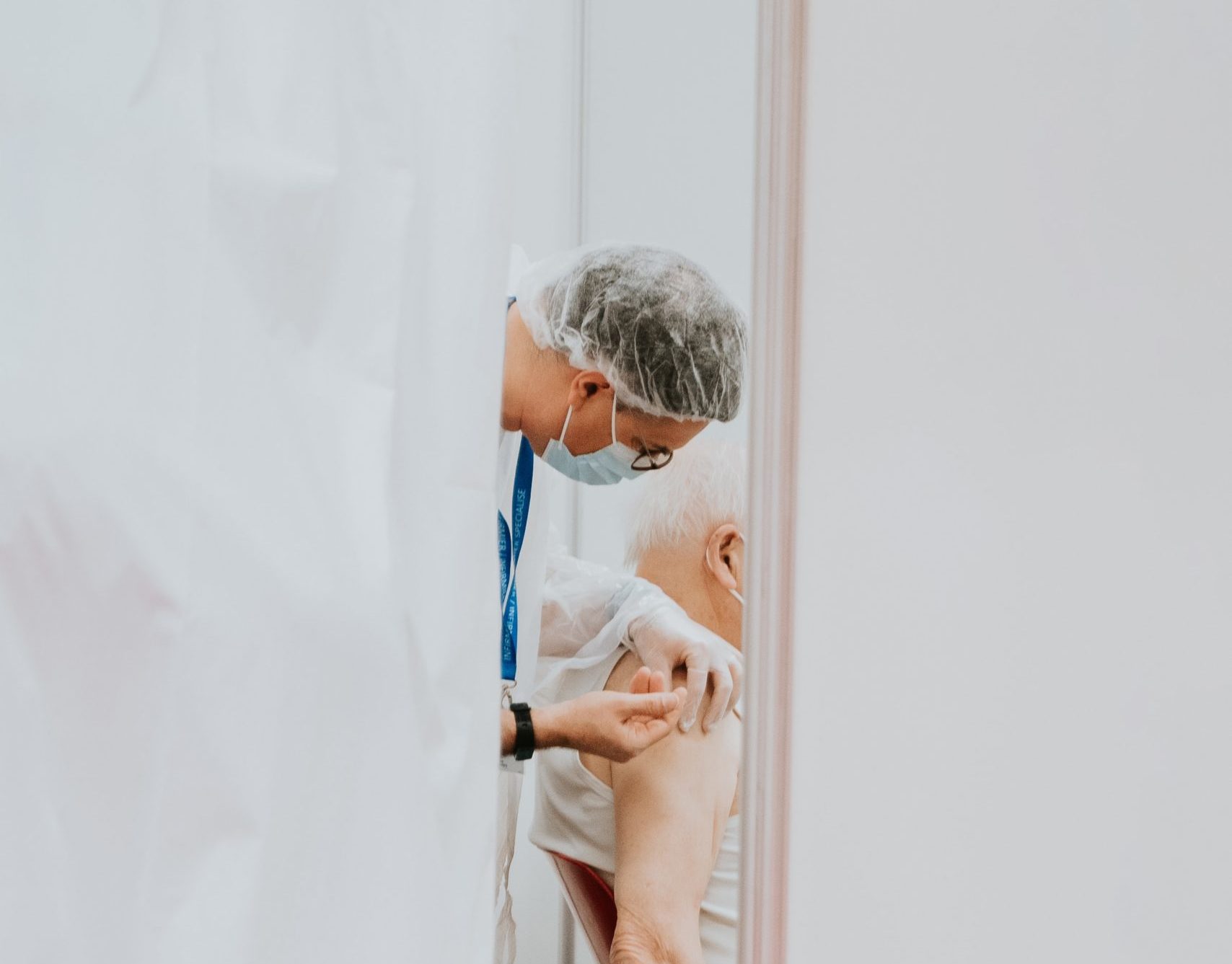South Korea is accustomed to positive international publicity, usually merited. BTS, Blackpink, “Parasite,” “Minari,” and K-dramas undergird cultural soft power. The 2018 Winter Olympic Games were a sports diplomacy masterstroke. Samsung, Hyundai, LG, and other global brands are showcases for South Korean innovation. South Korea has an expansive trade agreement portfolio — including high-quality deals with the United States, European Union, and Association of Southeast Asian Nations (ASEAN) — and is a member of the Regional Comprehensive Economic Partnership. Seoul is consistently portrayed internationally as a responsible, democratic hard power, whose military prowess and sophistication are even more valued for belonging to a democracy, in contrast to the ghastly Pyongyang dictatorship.
Throughout 2020, South Korea received frequent positive coverage for its COVID-19 mitigation policies — centered on testing, tracing, and treatment — that have allowed the country to protect public health without lockdowns.
2021, however, has been rough for South Korea. From terrible vaccine procurement to corruption to diplomatic debacles, the country has lost its way.
THE WINTER OF SOUTH KOREA’S DISCONTENT
January continued a trend that began in November 2020, of stubborn COVID-19 case numbers in the country’s third wave. Compared to the west, average new infections in South Korea are low (ca. 500–700 per day), as are hospitalizations and deaths, but they are high enough to prevent the central government from loosening various public health restrictions disrupting normal life.
South Koreans are weary of living with COVID-19. But they will carry the burden for longer than populations in the United States or the United Kingdom because the Moon administration has grossly mismanaged the COVID-19 vaccination rollout throughout the country.
Moon’s administration was self-satisfied after the first infection wave in mid-2020, which South Korea successfully mitigated, driving new cases to zero for part of May. This self-satisfaction bred complacency in signing vaccine contracts. This was worsened by a risk-averse, penny-wise-pound-foolish procurement strategy, in which Seoul refused to open its ample coffers and throw money at as many vaccines as possible. It instead waited on preliminary trial results and pricing visibility before deciding with which manufacturers to sign vaccine contracts. Seoul also prioritized securing domestic production licensing agreements. The failure of this approach became evident by fall 2020, during the second infection wave. But even then South Korea waited on contracts until December, putting it at the back of the vaccine delivery line.
Now stuck in a third wave, and with the government fearing an explosive fourth, President Moon Jae-in has faced severe criticism for the dismal vaccination performance. Vaccination rates are abysmally low — 1% of the population fully vaccinated, with herd immunity optimistically targeted for November 2021 — compared to peer countries like the United Kingdom, Canada, or some EU member states. And despite its wait-and-see approach, South Korea ended up primarily with AstraZeneca’s vaccine, which has less efficacy and more side effects than vaccines from Pfizer or Moderna. Adding insult to injury, South Korea has watched its positive international coverage on the pandemic response wither compared to still glowing reports about Taiwan, New Zealand, and others.
More concretely, the vaccine failure means both ongoing public health risk, and delay to economic recovery. South Korea’s economy fared better than most during 2020 (-1.1% GDP growth), but make no mistake: South Korea’s economy, especially small business, is suffering due to the ongoing pandemic. This is anecdotally obvious from a stroll around formerly bustling commercial neighborhoods, where empty storefronts abound. The statistics support the impression. The official unemployment rate is at a 22-year high (5.4%), with January job losses the sharpest in two decades. Furthermore, March 2021 unemployment benefit rolls hit an all-time high. The real rate of unemployment is higher still, as many people have left the job market.
SOUTH KOREA LOSES ITS WAY
Domestic politics are also in turmoil.
Now stuck in a third wave, and with the government fearing an explosive fourth, President Moon Jae-in has faced severe criticism for the dismal vaccination performance. Adding insult to injury, South Korea has watched its positive international coverage on the pandemic response wither compared to still glowing reports about Taiwan, New Zealand, and others.
In December 2020, the progressive government led by the Moon administration passed a law prohibiting advocates for North Korean human rights and regime change from sending leaflet-balloons across the DMZ to North Korea. Throughout December and into January 2021 the ban received heavy criticism domestically and internationally for violating free speech. This included strong statements from US Congress, which in April, is holding bipartisan human rights committee meetings to investigate the leaflet law. More generally, recent South Korean government decisions have garnered criticism that the country is backsliding toward illiberalism. Indeed Moon was embroiled in a battle with his appointed national prosecutor general, who fought prosecutorial reforms allegedly designed to more easily allow the government to prosecute political enemies and protect friends. The prosecutor general eventually resigned in protest and rocketed to the top of national approval polls.
The irony of Moon’s seemingly growing tolerance for illiberalism and corruption is piquant: He came to power on the back of a democratic protest movement that led to impeachment of his illiberal, corrupt conservative predecessor, Park Geun-hye.
What has really stung Moon’s progressives is a land speculation corruption scandal involving government officials profiting from insider information about urban redevelopment projects. Scores of officials are under investigation; several have committed suicide to escape scrutiny. The scandal has seen Moon’s approval rating plunge to a new low at 33.4% in April, while his disapproval rating is at a record 63%. Moon’s ruling progressive party has also plummeted to its lowest approval level, 28.1%. With Seoul and Busan mayoral by-elections looming in the near future, these numbers came at a bad time for Moon and his party. The ruling progressive candidates were crushed in both elections, which were a referendum on the ruling party and a bellwether for the March 2022 presidential election (Moon cannot run again). The only consolation for the progressives — and a sad testament to broken Korean politics — is that exit polls showed the record-high turnout in the by-elections did not indicate support for conservative opposition so much as disgust at rank hypocrisy and incompetence of the ruling administration.
Overlapping with the land speculation fiasco was a mind-boggling, inexcusable political and diplomatic own goal. Scrambling to contain stubbornly elevated COVID-19 cases and rising unpopularity, South Korea’s ruling progressives announced a policy of mandatory testing for all foreign workers, initially in the populous Gyeonggi province ringing Seoul, and then in Seoul city itself. A cynic would note that the ethno-nationalist ruling progressive party would have incentives to scapegoat foreigners for the virus troubles and distract from government failures and scandals.
As long as mandatory COVID-19 testing for foreign workers was confined to Gyeonggi province, where workers are poorer, less visible migrants doing 3D (dirty-dangerous-difficult) jobs, reaction was muted. When the ruling party extended the order to all foreign workers in Seoul, who are wealthier and better connected to the capital’s international business and political community, the backlash was swift and brutal. News of the mandate’s extension to Seoul leaked on the eve of the policy rollout, leading Seoul-based foreign journalists to publicize the story. By the following day, when the order was officially announced by Seoul city, the embassies of the United States, the EU and member states, the United Kingdom, and Australia were preparing to discuss, condemn, and fight the mandate. The American, European, and Australian chambers of commerce were also livid. International media were unsparing in calling the order xenophobic. Seoul city, which denied charges of promulgating a racist policy, dug in its heels on the order, despite criticism from infectious disease specialists that singling out foreigners with no other risk factors was both racist and a public health hazard, as lines at testing centers might cause super-spreader events.
For good measure, the order’s announcement coincided exactly with the arrival of a US diplomatic delegation led by Secretary of State Antony Blinken and Secretary of Defense Lloyd Austin. Doubtless they were enthusiastic about adding the mandatory testing order to an agenda already packed with tricky talks about North Korea, reform to wartime operational control (OPCON) of South Korea’s military, and aligning Washington and Seoul policy on China and the Indo-Pacific.
Within a few days, both negative international and national media coverage of the forced testing order was at fever pitch. The British and Canadian ambassadors harshly and publicly condemned the measure. The EU and its member states, as well as Norway and Switzerland, sent démarches to the highest levels of the South Korean government. The international chambers of commerce continued their protestations. By Thursday evening, Seoul city’s response was total chaos, with contradictory reports about revising the order to exclude diplomats and white-collar expatriates, the addition of students to the forced testing list, retractions of the changes, and retractions to the retractions. The city admitted the original idea was to only test certain types of foreign workers (i.e., poor migrant laborers), but that the city was afraid of criticism for discrimination on the basis of occupation. Astonishingly, the solution was apparently discrimination by ethnonational belonging.
Finally, by the end of the week, the city withdrew the mandatory testing policy in a humiliating climbdown in the face of international media, business, and diplomatic pressure. The reputational damage, however, is significant.
The diplomatic debacle capped an uneasy visit by the US delegation. The two sides managed to sign a long-simmering, burden-sharing agreement, but body language was strained. The end result of US-South Korea talks showed both countries remained apart on North Korea, OPCON transfer, China, and other issues.
GETTING BACK ON TRACK
Fortuna’s wheel will turn again, but South Korea has seen better days. Of course, the Lord helps those who help themselves, and the question is: “What can South Korea do to help its cause?”
The ship has sailed on fast-track vaccine procurement, so South Koreans will need patience until herd immunity. But the wait will be easier if the Moon administration shows humility in the face of popular anger and focuses on its original campaign pledge: Fighting corruption, helping the middle class and small business, and chastening the oligopolistic conglomerates dominating the local economy. On the foreign policy front, improving relations with the United States, an important ally, while focusing less on quixotic breakthroughs with North Korea would be a start. Placing more emphasis on effective participation in multilateral regional and global engagement could restore some lustre to South Korea’s fading star.
Mason Richey is a professor of international politics at Hankuk University of Foreign Studies (Seoul, South Korea), and a senior contributor at Asia Society Korea. He is co-editor of the volume The Future of the Korean Peninsula: 2032 and Beyond (Routledge, forthcoming in 2021).














